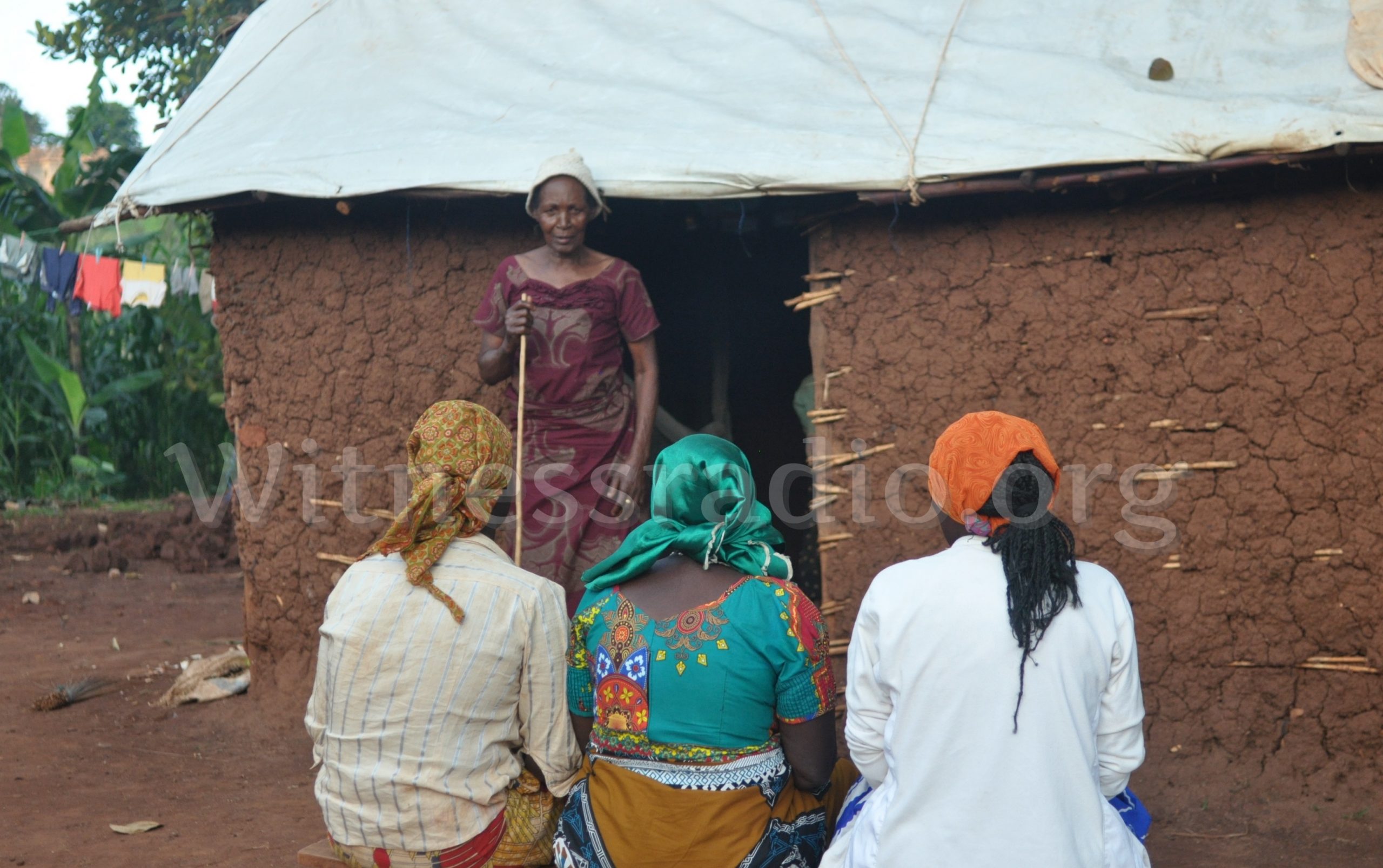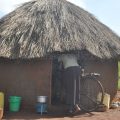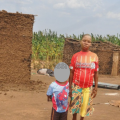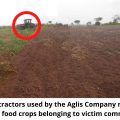Good dreams shattered as forced land evictions breed child marriages in Hoima districts…
By witnessradio.org Team
Atimago Prisca, at the age of 11 years, was among the many children that lost their dreams of a good life when her families and the entire Rwemutonga village were invaded by anti-riot police and other security agencies and got evicted on orders of a rich man.
The evictor was Joshua Tibagwa who grabbed land to be used by an American company, McAlester Energy Resources, from Texas as a petroleum wastewater facility.
Uganda discovered commercially viable oil deposits in the Albertine Graben region in 2006. Uganda has approximately 6.5 billion barrels of oil reserves, with at least 1.4 billion estimated to be economically recoverable. In addition to producing and exporting crude oil, Uganda plans to build a refinery to produce petroleum products for the domestic and EAC markets. However, many citizens continue to ask whether oil discovery is a curse or a blessing…?
The 1000 villagers on a fateful day woke up to screaming, a hail of live bullets and teargas followed by the setting of fire onto people’s homes and looting of properties. Families fled to the nearby bush because armed personnel was threatening to kill whoever would resist vacating the land.
“Before we heard one of our neighbors screaming out loud that, please forgive me, do not burn my house, now where do you want me to go, please have mercy. At first, we thought that they were being attacked by thieves. Shortly, in less than 10 minutes, a group of more than 10 armed policemen to our home and asked us what we were still waiting for, my mum replied to them that this is our land. They ordered us to immediately leave. Our father too tried to resist but one of the armed men told him that he would be killed if we don’t leave our home” Said Atimago.
Atimago, now a single mother of one at the age of 17 years, dropped out of school on a day of forceful eviction since her parents were rendered financially weak to meet the basic needs of 10 children.
Atimago who wanted to become a midwife narrated that after surviving a deadly land eviction, a well-wisher identified as Atien Oketch offered a 40×40 piece of land where they camped as a community and built some temporary structures and life became very hard.
“You imagine a family of 10 to sleep in that small structure, it was terrible that we could not manage the situation, some of us decided to get married. “At the age of 13, I decided to go for marriage since we had nowhere to sleep, nothing to eat, and no privacy, and I hoped that marriage would give me peace but that did not come” added Atimago.
She further explained that her marriage did not last long since his husband was not caring.
“After getting pregnant he told me to leave that he had nothing to do with me. He used to beat me which forced me to leave our home to a friend’s. Up to this time, he does not offer any help which forced me to stay with my parents,” she added.
Atimago’s story is not different from over 40 young girls in Rwamutonga who lost their education because of evictions in 2014 and they have since married been off.
“We were not even served with eviction notices, we didn’t know that we were going to be evicted, and police just came with four trucks full of police officers. They started firing bullets in the air and tear gas. Police together with the deputy RDC [Ambrose Mwesigye] burnt down houses, destroyed our properties, and even looted some,” some residents claimed.
In an interview with Nelson Atich, Bugambe sub-county Councilor and representative of the evictees, he said the eviction was an advantage to the Boda Boda men who opted to marry these girls since many did not have wives.
“Of the over 1000 people, 700 were children and 60% were girls who could not tolerate this situation. For three years we were staying in a camp which is a deadly scenario for the girl child. What is annoying is that most of them after being used or impregnated were dumped,” he said.
However, after the eviction, the victim community ran to court and in 2015, Masindi high court ruled in their favor that the eviction was illegal. “The Eviction was unlawful and should not have happened in the first place because at the time of the execution of the warrant of vacant possession, there was an ongoing suit to determine true ownership of the land,” ruled Justice Simon Byabakama.
Whereas in 2017, the evictees were resettled back to their original land, but the lost dreams of a good future will never be recovered as the court did not consider awarding them for such damages.


 MEDIA FOR CHANGE NETWORK2 weeks ago
MEDIA FOR CHANGE NETWORK2 weeks ago
 FARM NEWS2 weeks ago
FARM NEWS2 weeks ago
 MEDIA FOR CHANGE NETWORK1 week ago
MEDIA FOR CHANGE NETWORK1 week ago
 MEDIA FOR CHANGE NETWORK1 week ago
MEDIA FOR CHANGE NETWORK1 week ago
 MEDIA FOR CHANGE NETWORK4 days ago
MEDIA FOR CHANGE NETWORK4 days ago
 MEDIA FOR CHANGE NETWORK6 days ago
MEDIA FOR CHANGE NETWORK6 days ago
 MEDIA FOR CHANGE NETWORK2 days ago
MEDIA FOR CHANGE NETWORK2 days ago
 MEDIA FOR CHANGE NETWORK2 days ago
MEDIA FOR CHANGE NETWORK2 days ago



































